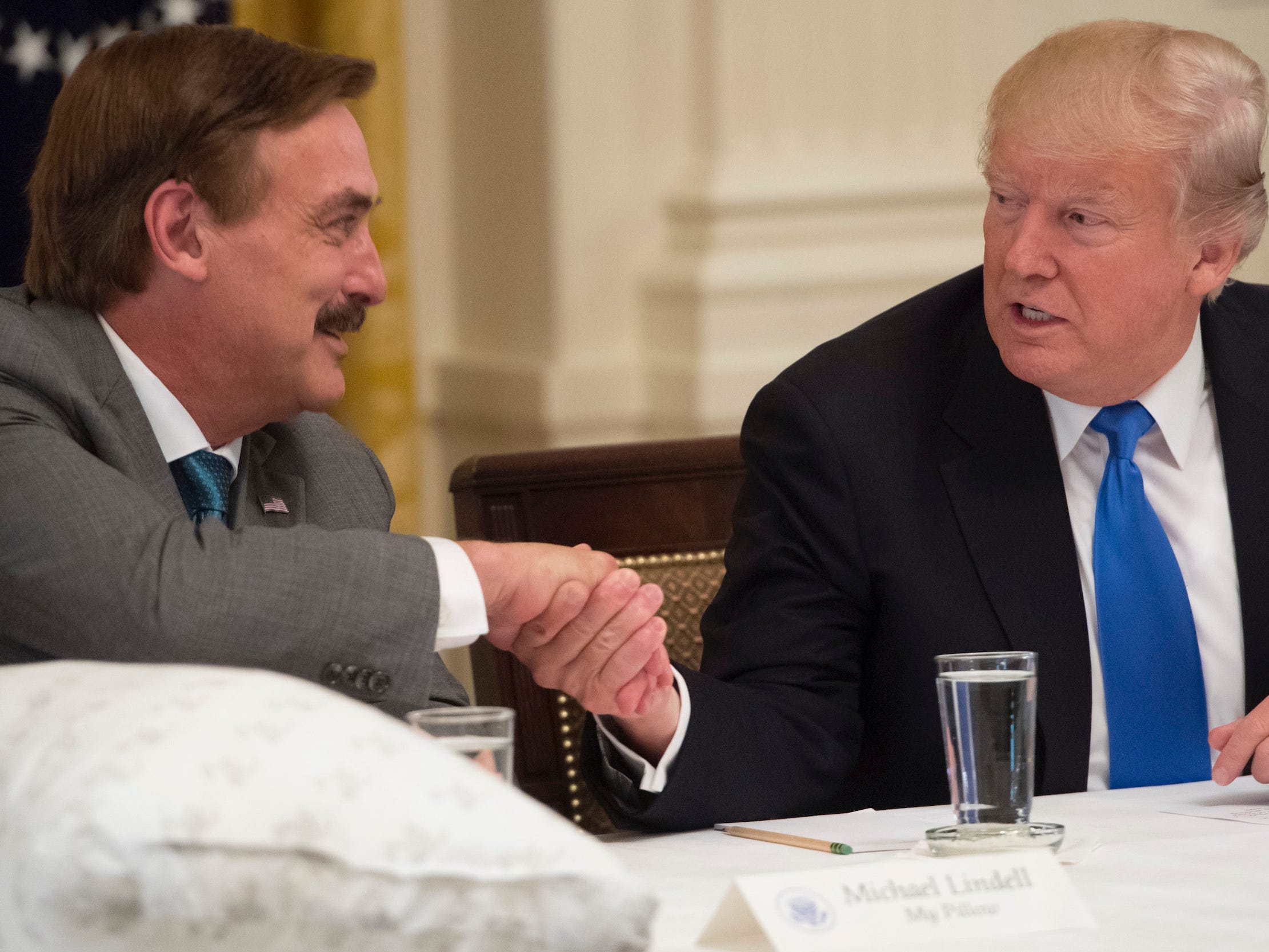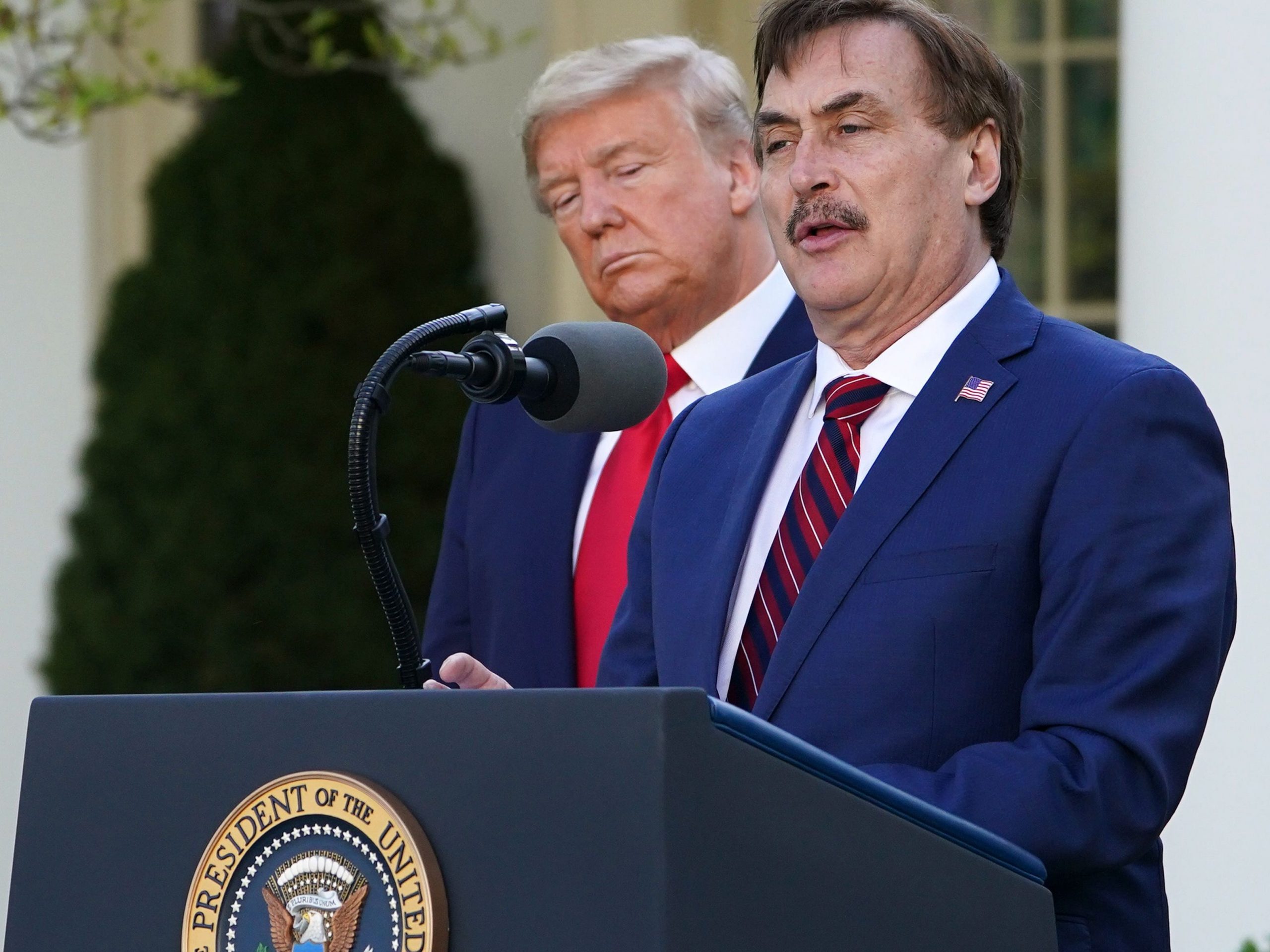
SAUL LOEB/AFP via Getty Images
- Mike Lindell expects MyPillow to lose around $65 million this year after retailers severed ties.
- But marketing experts say the company might actually be able to capitalize off the bad press.
- See more stories on Insider's business page.
In the space of just a few months, MyPillow CEO Mike Lindell has been blocked from Twitter, sued by voting-machine company Dominion, and cut off by Newsmax after he spread baseless voter-fraud conspiracy theories.
His comments have hit his business, too. MyPillow's Twitter account has also been suspended, and Lindell has said that 22 retailers have stopped selling its products, which he expects will cost the company around $65 million in lost revenue this year.
More than 100,000 people have also signed a petition calling on other retailers, including Amazon and Walmart, to pull ties with MyPillow.
But the company might actually be able to capitalize off the bad press around Lindell, marketing experts told Insider.
When Lindell is in the news, interest in the brand grows, Jim Lecinski, a professor on Kellogg School of Management's MBAi program, told Insider.
Google Trends data show searches for MyPillow soar when Lindell is in the news, such as in August 2020, when he promoted oleandrin as a COVID-19 treatment. And in January and February 2021, when he repeatedly pushed voter-fraud conspiracy theories. These surges of interest don't align with general search trends for bedding.
Estimates from ad-data company Pathmatics suggest MyPillow also boosted its Facebook ad spending each time Lindell hit the headlines.
Lecinski said it makes sense to spend more money on advertising when interest, and consequently brand awareness, are already high.
"MyPillow is recognizing that bad press is still press and is taking advantage of the energy, no matter the sentiment," Matt Klein, a cultural researcher and consultant, told Insider. "Lindell's divisiveness is attractive to some."
"So when there's a press hit, negative or positive, he becomes top of mind again for those consumers," Klein added.
Lindell previously told Insider's Kate Taylor he tracks every MyPillow ad either breaks even or makes money, regardless of controversies he's embroiled in at the time.
When Lindell is in the news, this can act as upper-funnel marketing, which has the purpose of raising brand awareness, Matt Voda, CEO of OptiMine, told Insider.
MyPillow can instead focus on lower tunnel direct response marketing, including paid search, social media, and TV ads, to drive sales, he said.
Some consumers may stop buying MyPillow's products
There will be some consumers who "vote with their dollar" and stop buying MyPillow's products, Lecinski said, referring to previous Nike boycotts, but he added that it's not clear how long this will last.
Christina Eyuboglu, publicist and crisis-management expert at Adduco, told Insider that people support companies that align with their belief systems, and purchase accordingly.
"It's a way to put your money, and your power, behind your ideologies," she said.

MANDEL NGAN/AFP via Getty Images
Eric Schiffer, chairman of Reputation Management Consultants, told Insider that MyPillow should focus on boosting sales among Lindell's most loyal supports.
"To save the MyPillow brand, Lindell must hyper-focus on the portion of his conservative audience not turned off by his conspiracies and his running amok with a brand suicide vest and close to pulling the cord with catastrophic effects to the company," he said.
Schiffer added that Lindell's support of voter-fraud theories has "[left] the MyPillow brand in the septic muck caused by its own CEO."
Lindell is optimistic about the future of MyPillow
Lindell, however, doesn't seem worried about the future of the company.
In an interview with Insider on April 1, he said radio and podcast infomercials could plug the gap in lost retailer revenue. "With our branding, we are just doing stuff that works," Lindell said.
In a podcast in March, he said the companies who kept stocking its products were "thriving," and that MyPillow has had to expand its workforce to meet demand. However, one large retailer, Costco, appears to have recently stopped stocking MyPillow items - but it declined to say whether it had fully cut ties with the brand.
Lecinski said some of Lindell's supporters may choose to buy more MyPillow products to show their support for his beliefs. He added that a lot of people ultimately aren't engaged in the news, so they may continue buying the products without knowing about Lindell's controversies and the calls to boycott the brand.
Because MyPillow has always focused on direct consumer advertising, the shift from retailers to DTC sales won't be hard for the brand, Voda said. Lindell himself has said that more customers have been buying products directly through MyPillow - and perhaps the company's doubling-down on radio and podcast infomercials could help further fuel this.